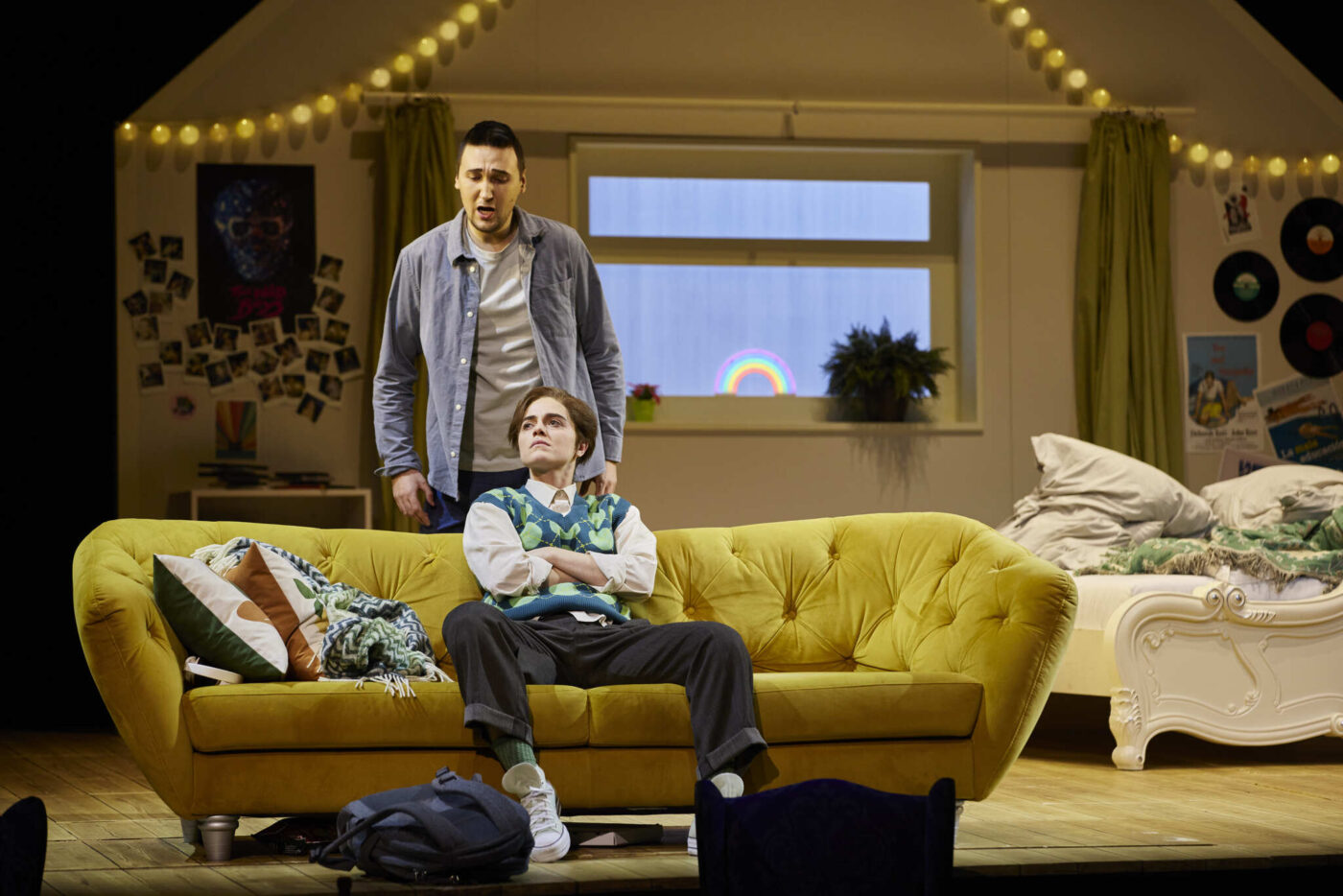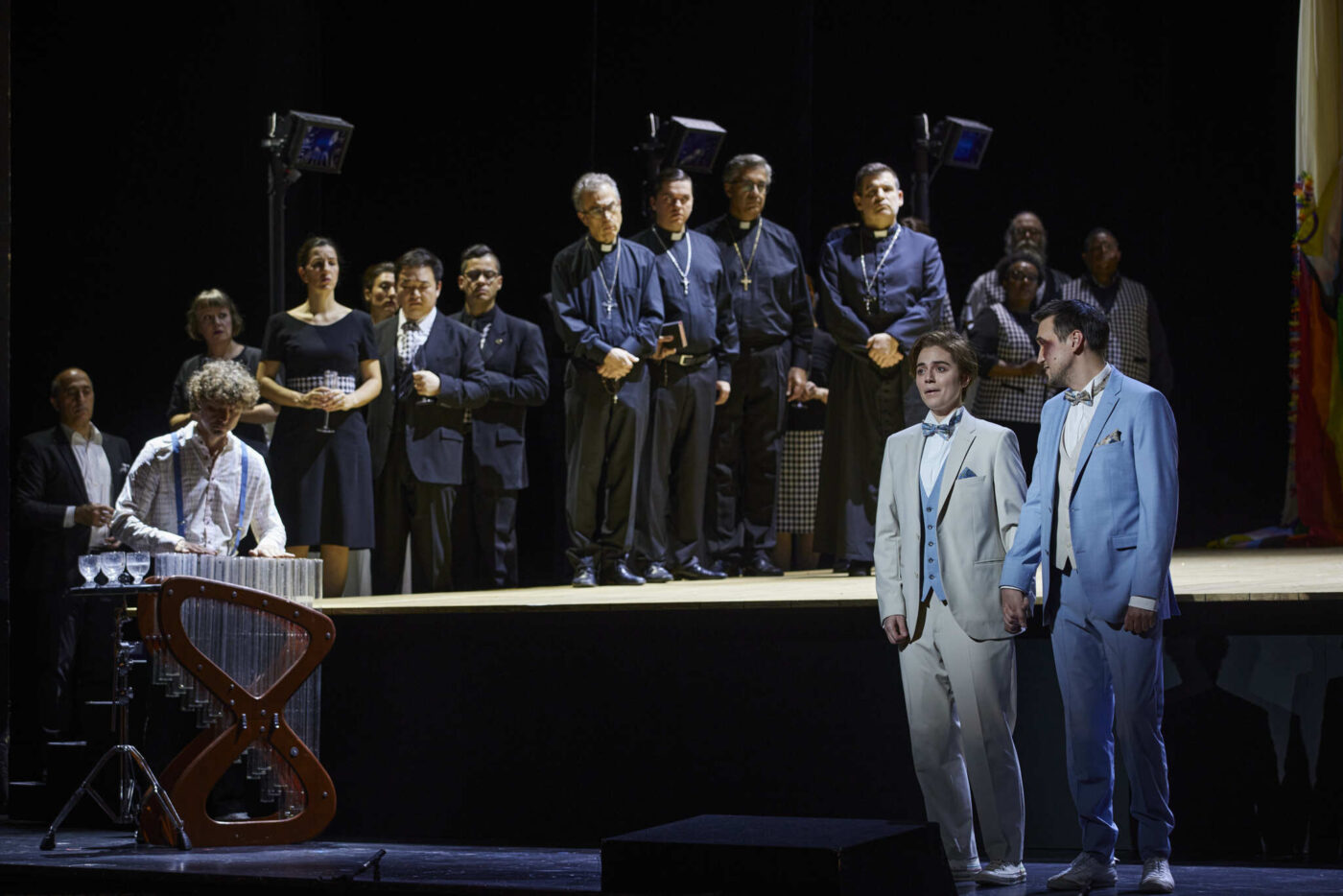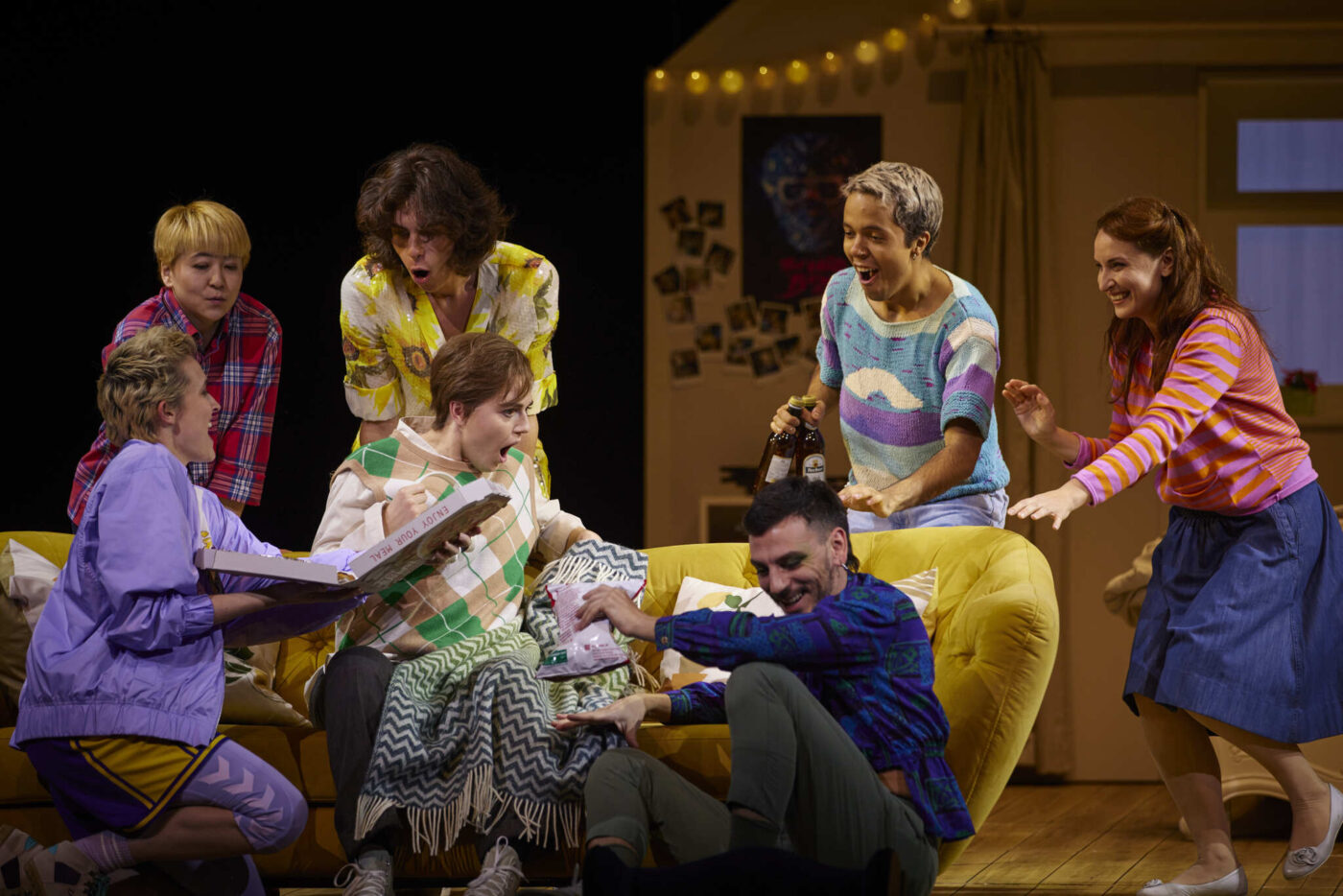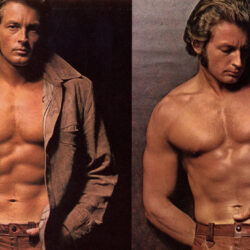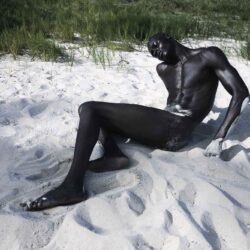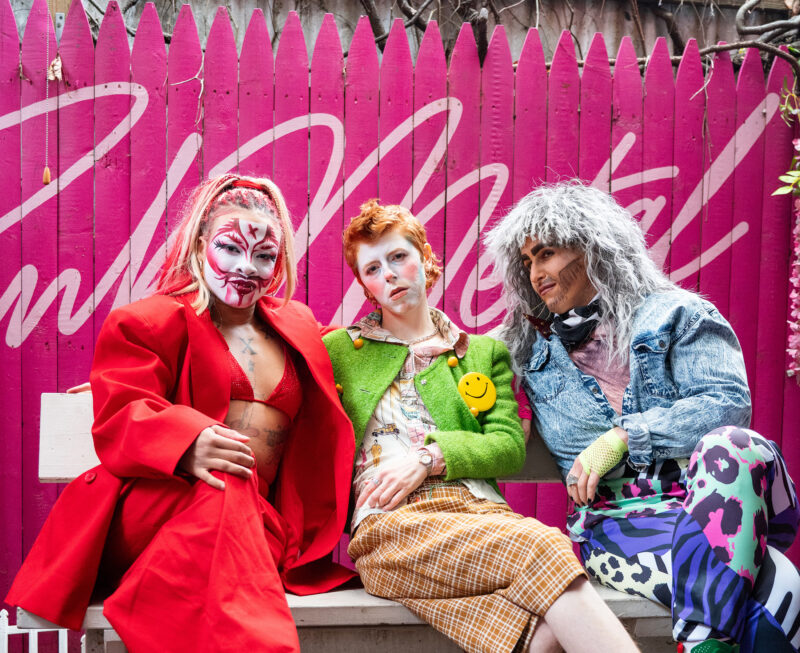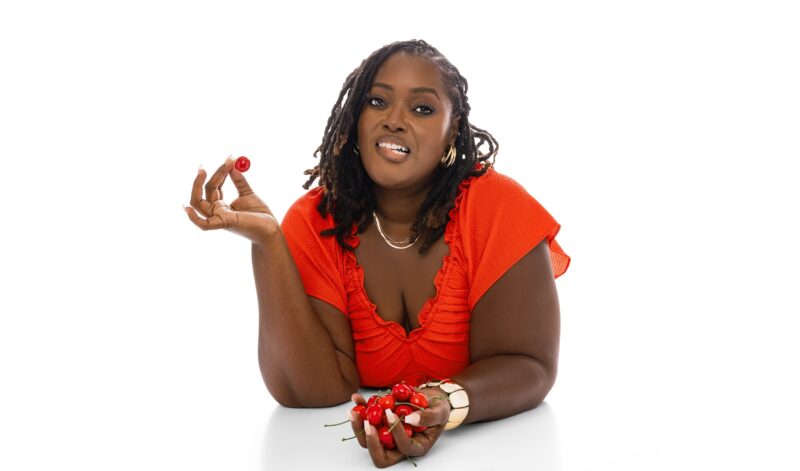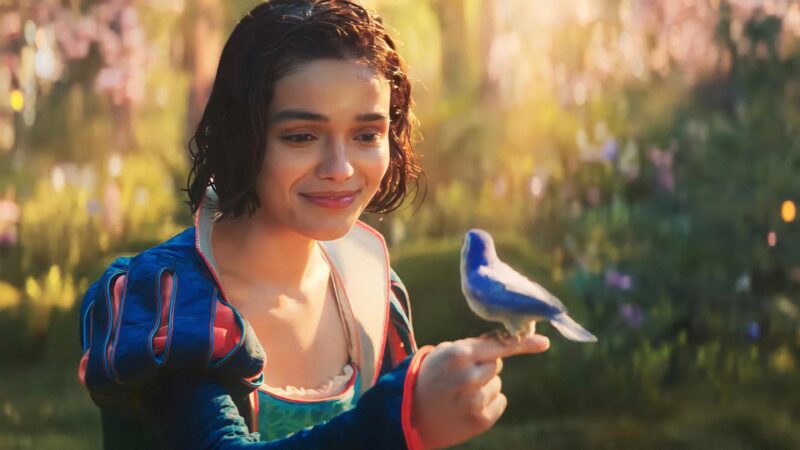Is opera out of touch with contemporary sensibilities? Have the belcanto operas of Giachino Rossini, Vincenzo Bellini and Gaetano Donizetti come to be seen, above all else, as… boring?: pompous divas chirping their way through mad scenes and overweight tenors stabbing themselves to death.
Born in Tuscany, Italian stage director Ilaria Lanzino experienced such conservative opera productions firsthand in the 1990s. She also experienced neo-conservatism in Italy in the years that followed, when it comes to women’s rights and a strong opposition to LGBTQ’s rights.
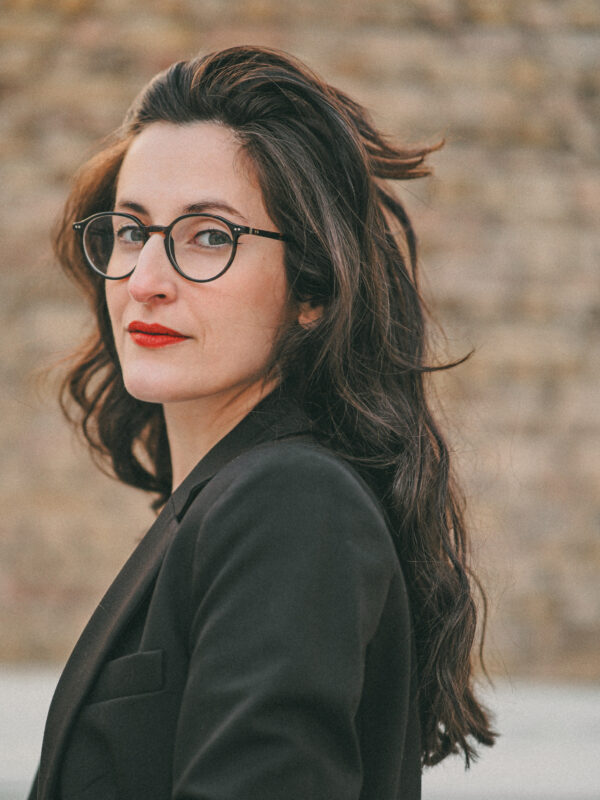
Ilaria Lanzino, © Lena Faya.
It is no surprise that Lanzino caused quite a stir recently with her queer reading of Donizetti’s prima donna vehicle Lucia di Lammermoor, turning it into a gay coming-out drama for the Nuremberg Opera House. The opera is based on the novel The Bride of Lammermoor, originally set in the highlands of Scotland and dealing with the secret love between Lucy Ashton and Edgar Ravenswood from two rivalling clans. A bit like Romeo and Juliet, but with kilts and an Outlander backdrop. This 1819 novel was turned into an opera in 1839 by librettist Salvadore Cammarano, who reshaped Lucy and Edgar into Lucia and Edgardo.
When Lanzino studied the libretto, she stumbled over descriptions of the “forbidden” affair between Lucia and Edgardo that label their love as “not sanctioned by god” and an “abomination.” She was reminded of the church and same sex relationships. She was also reminded of her teenage friends when they came out as queer. This planted the idea to re-tell the Lammermoor story as a male-male-romance between a young Luca and his secret lover Edgardo.
The role of Luca in her Nuremberg production is sung by a cross-dressed soprano. “It has been an accepted practice for centuries to cast pubescent boys with women-in-trousers”, Lanzino tells Playgirl. “Think Cherubino in Mozart’s Marriage of Figaro or Octavian in Richard Strauss’ Rosenkavalier”. So, to cast Luca with the Greek-Canadian soprano Andromahi Raptis and to put her in a young man’s outfit wasn’t far-fetched. A little less traditional was her idea to illustrate the burning love between the two youngsters by allowing Luca to give Edgardo a blowjob during the duet “Verranno a te sull’aure i miei sospiri ardenti.” It might have only been simulated oral sex, but the press jumped at it and turned it into headline news. Only overshadowed by the bigger news of having a woman retell a classic story as a gay love story.
Check out the trailer below:
In today’s #MeToo era it would be almost impossible for a female actor to play a total sex object who delights in her “to-be-looked-at-ness,” posing naked, grinning, flirting and fucking for three plus hours. “Only a brilliant and astonishing male actor like Werdelis would dare luxuriate in such abject glory. And only a visionary director like Daniela Löffner would dare ask an actor to take such a risk”, writes Savran. If calling Löffner’s Lulu production a gay reconceptualization is a misnomer, her 2021 staging of Gerhart Hauptmann’s play Einsame Menschen (Lonely Lives) at the Deutsches Theater in Berlin was exactly that. There, Löffner changed the gender and pronouns of the young woman with whom the married male hero carries on an affair in order to recoup the sense of forbidden love that had been dulled by over a century of countless plays about adultery. Her version became a tragic, gay love story which climaxed in a steamy, elaborately choreographed, 25-minute (!) sex scene in the rain for two impassioned, naked men.
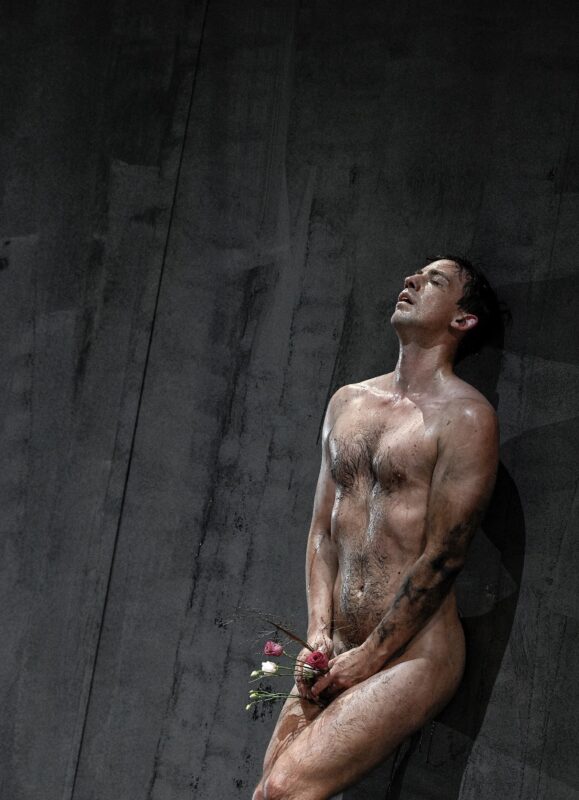
‘Lulu’ • photo: Sebastian Hoppe.
In Lulu Löffner avoids homoeroticizing Lulu’s and Geschwitz’s relationship by ensuring that the simulated sex looks heterosexual, Savran argues. And when Lulu mock-masturbates, she/he practices what looks like clitoral stimulation. Given her/his exaggerated femininity, it is perhaps tempting to think of this Lulu as a Teutonic Taylor Mac or Lady Bunny doing Marilyn Monroe, but there is nothing camp about Werdelis’ performance. He plays Lulu absolutely (and terrifyingly) straight. And he keeps the character’s female pronoun, Savran points out.
Conversely, Sergei Nikolaev as Edgardo and Andromahi Raptis as Luca do not play things straight, yet they are no less terrifying. “Which is what Donizetti and Cammarano wanted”, Lanzino says.
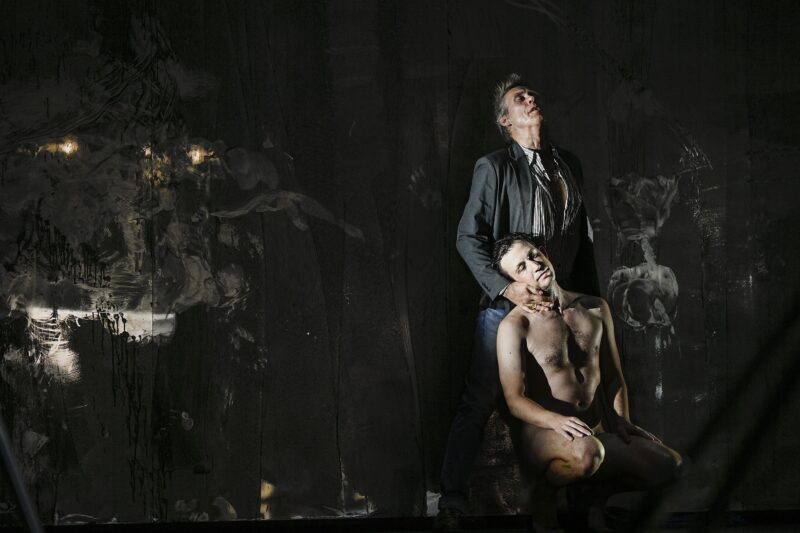
‘Lulu’ • photo: Sebastian Hoppe.
We have seen gender reverse casting on Broadway in recent years: in 1776 all the male identified roles were cast with women, trans and non-binary actors. And Jesus Christ Superstar has been released as an all-female cast album, deconstructing the 1970s rock opera for the feminist age. But in opera, certainly in the USA, such daring casting practices are unheard of. Wayne Koestenbaum called his renowned book about opera in general and belcanto operas in particular The Queen’s Throat, examining the way gay opera queens have identified with the works of Donizetti, Bellini and Rossini. By allowing her gay characters to act out their “ecstasy of ardent passion”, Lanzino gives us what opera is all about, at its core. And she reclaims such passion for female stage directors to work with– and for female audiences to enjoy.
- ‘Lucia’ • photo: Ludwig Olah, Staatheater Nürnberg.
- ‘Lucia’ • photo: Ludwig Olah, Staatheater Nürnberg.
- ‘Lucia’ • photo: Ludwig Olah, Staatheater Nürnberg.


